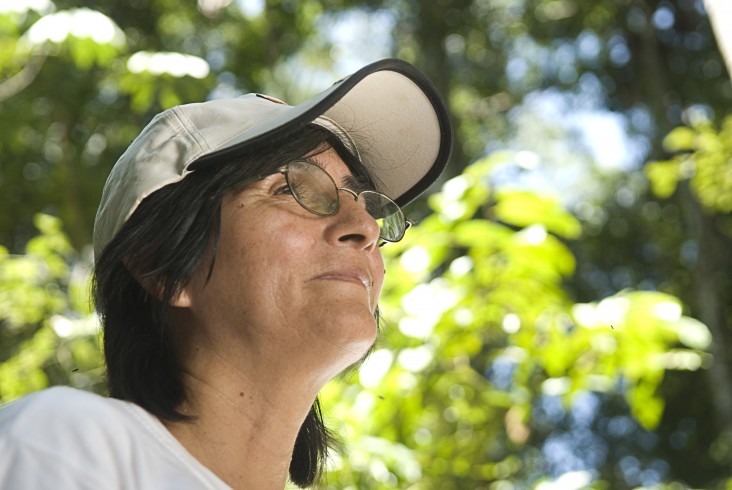
Sara Hurtado has been in love with the forest ever since she was a little girl.
"I would always go to the jungle in Cuzco where my parents lived, and every venture into the forest was amazing, " she says remembering her childhood vacations.
The daughter of Brazil nut producers and a single mother of three, Hurtado acquired her own concession of over 1,200 hectares in the early 1980s and now has 550 Brazil nut trees. The tallest in the Amazon Forest, Brazil nut trees can reach 50 meters in height, making harvesting the nuts no easy task.
"For me, the Brazil nut is life. It is forest preservation," she says.
Ten years ago, Hurtado participated in development projects, when, she says, "It was then that I truly realized my love for the forest and the great value of Brazil nuts."
Her persistence led her to head the first Brazil nut producer association in Madre de Dios, to promote the organization of other associations, and, finally, to create the department-level Federation of Brazil Nut Producer Associations and join its board of directors. Throughout, she has promoted women's participation.
"At present, women make up 30 percent of association membership and 30 percent of concession owners," says Hurtado.
She was also a visionary when it came to diversifying the end product. "It occurred to me that in Madre de Dios, we only sold candied Brazil nuts in small packets."
With support from USAID's Peru Bosques Project, Hurtado participated in two trade fairs—ExpoAmazónica Iquitos in 2013 and Mistura and Expoalimentaria in 2012, under her company's name, Peruvian Brazil Nut Industry, which presented 14 different products, including cookies, bonbons, pastries, chocolate-covered nuts, and candies. The project has also supplied Hurtado with technical assistance to diversify her product line.
Still, she says, "I am not satisfied with simply being a manager. My dream is to be a great leader."
The Peru Bosques Project, which runs from July 2011 to July 2016, is designed to achieve: a legal and regulatory framework to protect Peru’s forest sector, a sustainable conservation of biodiversity in the country’s Amazonian forests, and increased economic opportunities for businesses and native communities that make products from the forests' natural resources.







Comment
Make a general inquiry or suggest an improvement.